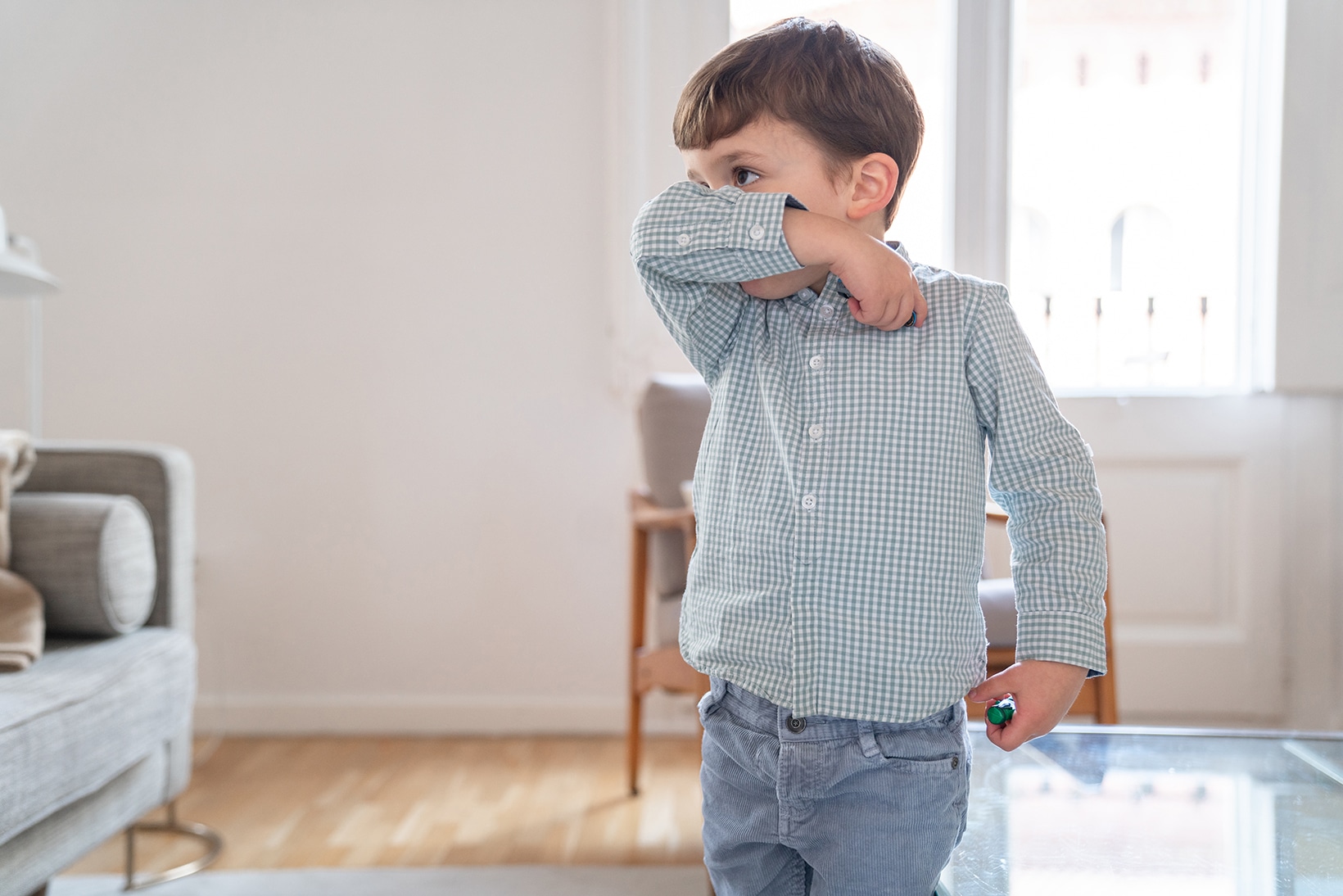
Kids’ Coughs
Understanding kids’ coughs
There’s nothing worse than listening to your child cough. Whether it’s a dry raspy cough, or that chesty cough, we can feel really helpless when our little ones are under the weather and coughing day and night. It affects the whole family too – kids with coughs need extra love and care from their parents or carers, who are still trying to juggle the rest of their daily load after an interrupted night’s sleep! Let’s try to understand what can cause kids’ coughs and how we can help them feel better.
First of all – coughing is the body’s natural protective reflex to help keep your kids’ airways clear from things that can cause irritation. The occasional cough is normal. But if your child develops a cough, it may be that they’ve picked up a respiratory tract infection such as the common cold. When we talk about the common cold, we really do mean common! Did you know that kids younger than six years typically bring home these annoying colds 6 to 10 times every year? Some other culprits to look out for are exposure to airway irritants such as smoke or dust.
What can we do to help relieve coughing when our kids get sick? Antibiotics do not help with the common cold, so are not needed for these coughs. Antibiotics are useful for when there is a bacterial infection but are typically not used for uncomplicated viral infections such as a common cold. Talk to your doctor if your child’s symptoms persist, worsen, or change unexpectedly. It’s also really important to know that cough medicines that contain certain ingredients may not be suitable for children under 12 years of age. Some cough mixtures may not be suitable for children under 6 years of age, whilst other should only be given to children aged 6 to 11 years under the advice of a doctor, pharmacist, or nurse practitioner. Make sure to always thoroughly read the dosing instructions to determine whether a medicine is suitable for your child.
When to see a doctor
If your child has a dry or chesty cough caused by a common cold, in most cases it’s reassuring to know that their symptoms should get better on their own in about 7 to 10 days and that most kids should be completely cough-free within 3 weeks.
Do seek medical advice if your child:
- Has a fever
- Experiences difficulty breathing or shortness of breath
- Appears lethargic and unwell
- Coughs up blood or green/yellow mucus
- Develops a cough after choking on food or other object
- Coughs so hard they vomit
- Does not improve after 2 weeks
- Experiences any other symptoms that worry you
- If your child suffers from any other chronic respiratory illnesses
- If your child is less than 3 years of age
Remember, if you or your family have cold & flu symptoms, you should get tested and follow health advice.
Other ways to help relieve coughs in children
Looking for some home remedies to help relieve your child’s cough? Keep your child hydrated with water, and consider warm fluids such as warm water and thin soup to help soothe airway irritation that makes them cough. For children over 12 months of age, try a teaspoon of honey just before bed to help relieve their cough. You could also consider using a humidifier in their bedroom – the moisture in the air can help soothe their airways and loosen any mucus.
Children’s cough FAQs
You should always talk to your doctor or pharmacist for appropriate advice in these situations.
If your child has trouble breathing or any other worrying symptoms, you should see your child’s doctor. It is time to seek medical advice if your child:
- Has a fever
- Experiences difficulty breathing or shortness of breath
- Appears lethargic and unwell
- Coughs up blood or green/yellow mucus
- Develops a cough after choking on food or other object
- Coughs so hard they vomit
- Does not improve after 2 weeks
- Experiences any other symptoms that worry you
- If your child suffers from any other chronic respiratory illnesses
- If your child is less than 3 years of age
You should always talk to your doctor or pharmacist for appropriate advice in these situations.
Give your child plenty of water and warm fluids to help soothe their airways and consider a humidifier to help moisten their airways and thin any mucus.
For children more than 12 months of age, try a teaspoon of honey just before bed – this can help soothe airway irritation to help relieve their cough during the night.
NZ-2024-07-0034
